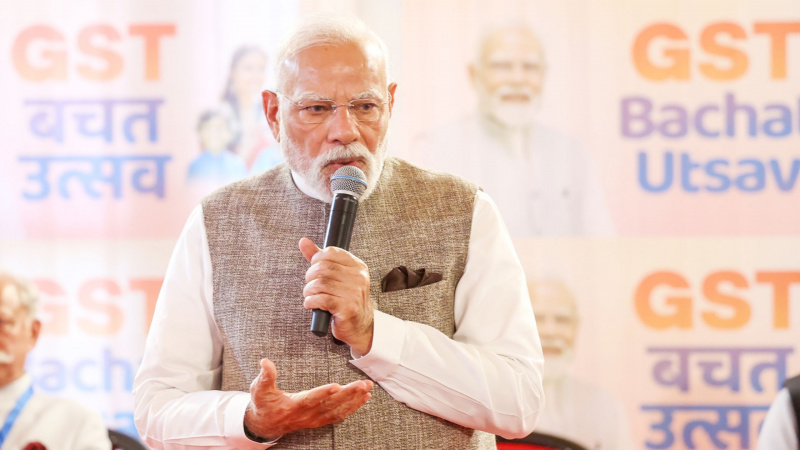Australia to Ban Social Media for Children Under 16, Announces PM Albanese: ‘This is for the Parents…’
Albanese explained, “It will be the duty of social media platforms to prove they are taking necessary steps to block access.” This approach aims to hold tec
- by B2B Desk 2024-11-07 08:31:27
In a landmark decision, the Australian government is set to introduce legislation that will prohibit children under 16 from using social media. This unprecedented move, aimed at safeguarding young people's mental health and safety, is scheduled to be presented in parliament next week.
Prime Minister Anthony Albanese’s Firm Stance
Prime Minister Anthony Albanese, leading the charge on this initiative, underscored the government's dedication to online child protection. At a news conference, he asserted, “This is for the parents... They, like me, are deeply concerned about our children's online safety. I want Australian families to rest assured that the government is here to protect them.”
The upcoming legislation is a direct response to the mounting evidence of the detrimental effects of social media on children and teenagers. Albanese emphasized the urgency of this measure, stating, “Social media is harming our kids, and it’s time to put an end to it.”
Key Aspects of the Proposed Legislation
The proposed ban will require social media platforms to implement measures preventing children under 16 from accessing their sites. Significantly, the law will not permit exceptions for children with parental consent. The responsibility to enforce these restrictions will lie with social media companies rather than parents or young users.
Albanese explained, “It will be the duty of social media platforms to prove they are taking necessary steps to block access.” This approach aims to hold tech companies accountable for creating a safer online space for children.

Implementation and Oversight
The legislation is expected to be enacted within the year, with regulations taking effect 12 months post-approval. Importantly, the ban will not apply to minors already active on social media at the time the law is passed.
Enforcement will be managed by Australia’s eSafety Commissioner, the nation’s dedicated online safety regulator. While there will be no penalties for young users, social media platforms will face consequences for failing to comply.
Criticism and Concerns
While many parents and child safety advocates have praised the government’s initiative, some experts question the efficacy of a blanket ban. Critics argue that simply delaying children’s exposure to social media does not address the underlying issues of online harm.
Previous attempts to impose age restrictions on social media, such as those by the European Union, have encountered significant hurdles. Experts note that children often find ways to circumvent age-verification processes, rendering such bans ineffective.
In conclusion, while the proposed social media ban for children under 16 marks a significant step towards protecting young Australians online, it remains to be seen how effective the legislation will be in practice. The government's resolve to place the onus on social media platforms is a clear signal of its commitment to addressing this critical issue.
Also Read: Will India Gain More Than It Loses Under Trump 2.0? Here's What Strategic Affairs Experts Say
POPULAR POSTS
The Agentic Revolution: Why Salesforce Is Betting Its Future on AI Agents
by Shan, 2025-11-05 10:29:23
OpenAI Offers ChatGPT Go Free in India: What’s Behind This Big AI Giveaway?
by Shan, 2025-10-28 12:19:11
Zoho Products: Complete List, Launch Years, and What Each One Does
by Shan, 2025-10-13 12:11:43
Arattai vs WhatsApp: Which Messaging App Should You Choose in 2025?
by Shan, 2025-10-10 11:55:06
Top Buy Now Pay Later (BNPL) Apps for Easy Shopping in 2025
by Shan, 2025-09-22 10:56:23
iPhone 17 Sale in India Begins: Full Price List, Launch Offers and Store Availability
by Shan, 2025-09-19 12:00:45
Apple September 2025 Event Recap: iPhone 17, iPhone Air, Apple Watch Series 11, and India Pricing Revealed
by Shan, 2025-09-10 09:55:45
RECENTLY PUBLISHED

Loan EMIs to Drop as RBI Slashes Repo Rate - Full MPC December 2025 Highlights
- by Shan, 2025-12-05 11:49:44

Pine Labs IPO 2025: Listing Date, Grey Market Premium, and Expert Outlook
- by Shan, 2025-11-05 09:57:07

Top 10 Insurance Companies in India 2026: Life, Health, and General Insurance Leaders Explained
- by Shan, 2025-10-30 10:06:42

Best Silver Investment Platforms for 2025: From CFDs to Digital Vaults Explained
- by Shan, 2025-10-23 12:22:46

Zoho Mail vs Gmail (2025): Which Email Platform Is Best for Businesses, Startups, and Students?
- by Shan, 2025-10-09 12:17:26

PM Modi Launches GST Bachat Utsav: Lower Taxes, More Savings for Every Indian Household
- by Shan, 2025-09-24 12:20:59




 Subscribe now
Subscribe now 